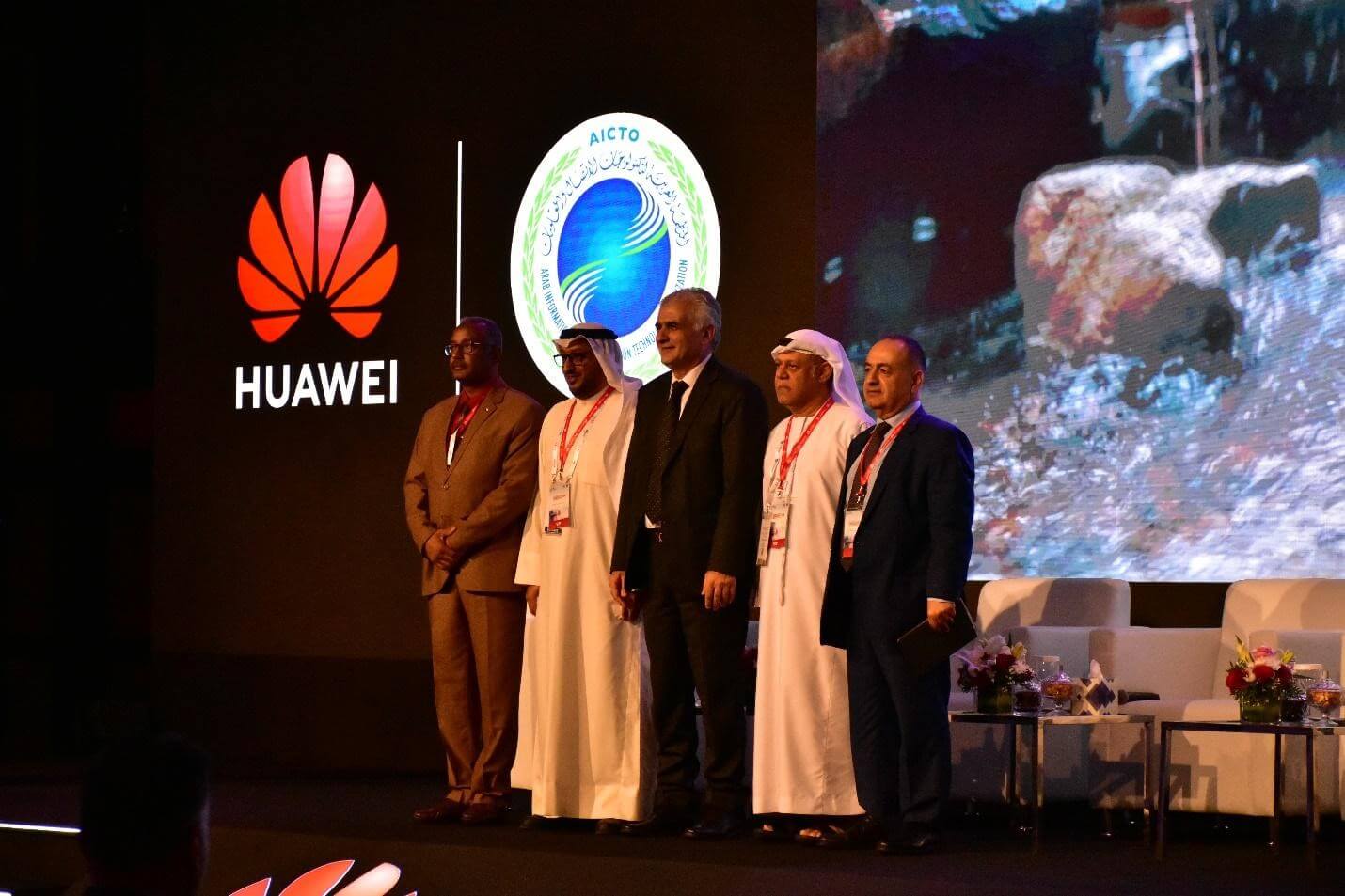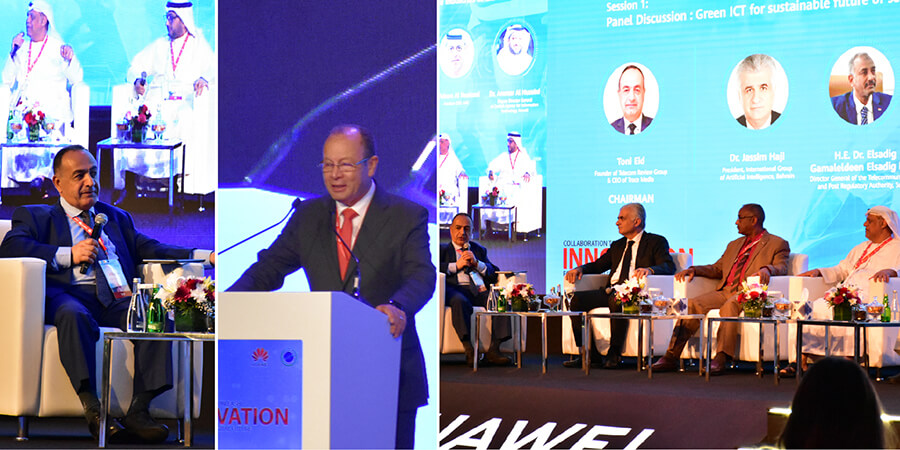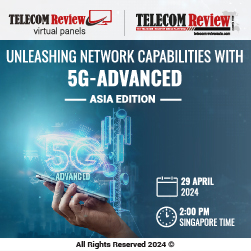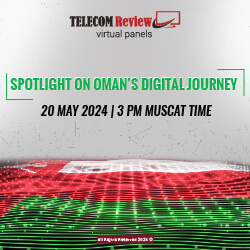On the sidelines of GITEX Global 2022, the Huawei MEA Innovation Day 2022 was held on October 11, 2022, in collaboration with AICTO, with the theme “Collaboration to Unleash Innovation for Sustainable Digital Future.”
In his opening keynote, Jeff Wang, president of public affairs and communications at Huawei, talked about the three main keys for digital transformation: innovation, collaboration and contribution. According to Wang, Huawei, as contributor, is dedicated to both innovation and collaboration for a successful digital future. “ICT sector serves as an enabler for the other industries’ sustainable development. So it is vital to work closely with the public and private sectors to fuel the transformation together,” Wang said. He went on to underscore how important it is to contribute to local society in order to advance ICT. “As the world goes towards digital transformation, innovation becomes more important as the driving force,” he added.
Another opening keynote was delivered by H.E. Eng. Mohamed Ben Amor, secretary general of the Arab ICT Organization. He argued about how stronger digitalization will require constant technological innovation. “Innovation is always and will remain the engine of economic and social progress with the profound transformational impact in our lives,” he said. An introductory keynote address was also presented by Zhang Yiming, the People's Republic of China's (PRC) ambassador to the United Arab Emirates (UAE), who discussed how innovation is the foundation of China's relations with the UAE. “Innovation is the secret of life,” he said. “Huawei has pursued innovation, and excellence and has become a benchmark for Chinese enterprises.”
Present in the event as well were VIP guests, namely H.E. Dr. Fadia Kiwan, director general of Arab Women Organization; H.E. Dr. Khaled Wali, director of the ICT department at the League of Arab States; and H.E. Dr. Mohammed Al-Ohali, president of King Faisal University in KSA. Dr. Fadia spoke about the empowerment of rural women as well as the younger generation’s lack of digital capabilities and knowledge on digitalization. “Invest in digital skills of your generation for the hope of a better future,” she said. Meanwhile, Dr. Khaled talked about the strategies “concerning every issue in Arab Regions.” He also noted that all these strategies will be finalized this year. Lastly, ICT and sustainability are intertwined, according to Dr. Mohammed. He stressed the necessity of collaboration between the government and NGOs. “Sustainability is top priority for humanity,” he indicated.
The Huawei MEA discussion also included the Head of GSMA MENA, Jawad Abbasi, who talked about mobile connectivity and new technology potentials. “What we are imagining today can become the reality of tomorrow,” Abassi stated. “Mobile connectivity is bringing endless potential to all business sectors and also making possible partnerships,” he added. Abbasi also highlighted that everyone must work together to make it possible for our sector to offer inclusiveness and opportunity that is fair and safe for everyone. “We want to build stronger businesses and communities and achieve the sustainable development goals. So we simply cannot afford to leave anyone behind.”
A panel was delivered under the event’s first session, entitled “Green ICT for Sustainable Future Sectors and Industries in MEA Region,” and was moderated by Toni Eid, founder of Telecom Review Group and CEO of Trace Media. The panelists included Dr. Jassim Haji, president, International Group of Artificial Intelligence in Bahrain; H.E. Dr. Elsadig Gamaleldeen Elsadig Karar, director general of the Telecommunications and Post Regulatory Authority in Sudan; Dr. Fahem Al Nuaiama, Ankabut CEO in UAE; and Dr. Ammar Al Husaini, deputy director general at Central Agency for Information Technology in Kuwait.
During the first batch of questions, Dr. Jassim acknowledged that many businesses shifted their attention away from sustainability during COVID-19. Additionally, Dr. Elsadig claimed that the ecosystem is now undergoing certain changes, and we, therefore, must put some measures into action to encourage more people to get up and use the greatest network; 5G deployment is strongly advised. He also stressed the importance of researching the potential use of renewable energy sources like solar in basic stations; designing energy-efficient components that protect low power; and introducing water-saving features into our data centers. On another topic, Dr. Fahem discussed energy usage and green power/sustainability in data centers and the cloud, including both public and private clouds. “Increase in capacity requires more power,” he said. “Power will play a very critical role in developing the cloud,” he added. Dr. Ammar talked about the public and government sectors in particular, stating that it is essential to have operations that are dependable, secure and scalable. He emphasized that these are crucial in order to maintain the list of services provided by the government. On this point, he distinguished between two major gaps: the technological gap and the skills gap.
During the second set of questions, Dr. Jassim discussed the AI-driven assaults, which are being added to the list of issues that experts are now working to resolve. In addition, Dr. Elsadig warned that we have low standards and that there are notable IoT trends in the market. The need for more metaverse security; the attention that specialists give to private clouds rather than the public; the big role of the hybrid cloud in sustainability; and how the cloud can speed up the transformation of technology were all discussed by Dr. Fahem. Finally, Dr. Ammar explored how open partnership and collaboration led to the creation of Huawei Cloud Academy, a face-to-face training program that the company offers to people interested in digital transformation.










